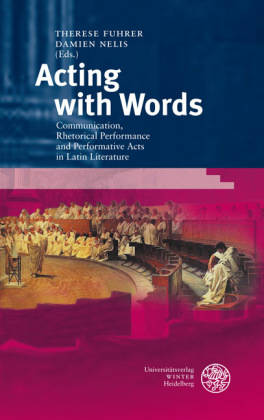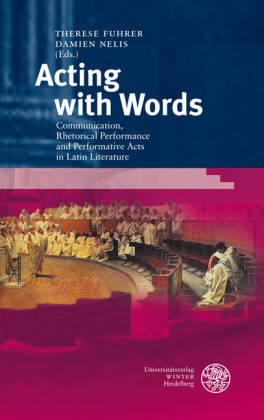
- Afhalen na 1 uur in een winkel met voorraad
- Gratis thuislevering in België vanaf € 30
- Ruim aanbod met 7 miljoen producten
- Afhalen na 1 uur in een winkel met voorraad
- Gratis thuislevering in België vanaf € 30
- Ruim aanbod met 7 miljoen producten
Zoeken
Acting with Words
Hardcover | Duits | Bibliothek der klassischen Altertumswissenschaften / The Library of The Other Antiquity | nr. 125
€ 43,45
+ 86 punten
Omschrijving
In recent years, literary theorists have devoted much attention to the ways in which narrative texts represent speech acts. But modern critics usually devote little space to the practice and technique of ancient authors. This volume brings together a series of essays illustrating different aspects of the study of representations of speech in narrative texts in a number of different genres. Approaching ancient texts in ways which intersect with a number of areas in which much research has been done in recent years, this collection makes it possible to look anew at the ways in which speech representation interacts with and plays an important role in constructions of power and authority in literary texts, the relationship between literature and political and broader cultural ideologies, and the connections between speech acts and intertextuality. It includes essays by Alexander Arweiler, Valery Berlincourt, Therese Fuhrer, Lavinia Galli-Milic, Christina Kraus, Roland Mayer, Melanie Moller, Damien Nelis, Loreto Nunez, and Thomas Schirren.
Specificaties
Betrokkenen
- Uitgeverij:
Inhoud
- Aantal bladzijden:
- 257
- Taal:
- Duits
- Reeks:
- Reeksnummer:
- nr. 125
Eigenschappen
- Productcode (EAN):
- 9783825356682
- Verschijningsdatum:
- 5/01/2010
- Uitvoering:
- Hardcover
- Formaat:
- Genaaid
- Afmetingen:
- 155 mm x 234 mm
- Gewicht:
- 511 g

Alleen bij Standaard Boekhandel
+ 86 punten op je klantenkaart van Standaard Boekhandel
Beoordelingen
We publiceren alleen reviews die voldoen aan de voorwaarden voor reviews. Bekijk onze voorwaarden voor reviews.






